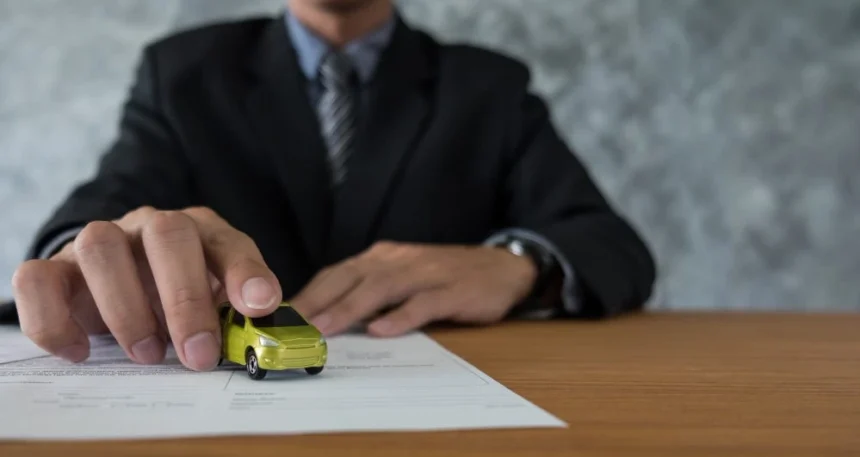Car repossession is one of those experiences that many people hope they never have to face. However, it’s a reality for thousands of Americans each year. When someone falls behind on their car payments, their vehicle may be repossessed by the lender. However, just because a lender has the legal right to repossess your car doesn’t mean that the process is straightforward or without complications. There are car repossession loopholes that many people aren’t aware of, and understanding them could make a significant difference in managing or even avoiding repossession.
In this article, we’ll dive deep into 10 key facts about car repossession loopholes that you need to know if you find yourself in a tough financial situation. We’ll cover everything from your rights, hidden repossession strategies, and tips to protect your vehicle from being taken prematurely.
Introduction of Repossession Loopholes
Car repossession can be a daunting and overwhelming experience, especially when you’re struggling to keep up with payments. However, just because a lender has the legal right to take back your vehicle doesn’t mean you’re powerless in the process. Across the United States and in other regions, there are various car repossession loopholes that borrowers can leverage to challenge or delay the repossession, reclaim their vehicles, or reduce the financial burden of the process. In this article, we’ll explore state-specific repossession laws, hidden rights, and strategies you can use to navigate this difficult situation, potentially giving you the upper hand in protecting your assets.
1. Know Your State’s Repossession Laws
Before diving into specific loopholes, it’s crucial to recognize that car repossession laws vary by state. In the U.S., each state has its own set of rules for how repossession must be conducted, and knowing these rules can be the first step in protecting your rights.
For example, in some states, lenders must notify you before they repossess the car. In other states, they may be able to take the vehicle without any prior warning. Knowing the specifics of your state’s laws could give you some leverage and buy you time.
Loophole Insight
In states that require notice, missing or improper notification can sometimes invalidate the repossession process, giving you an opportunity to challenge the repossession.
2. The Right to Reinstate the Loan
Most people believe that once the car is repossessed, it’s gone for good. However, many states allow borrowers the right to reinstate the loan after repossession. This means you can reclaim the vehicle if you catch up on missed payments and cover the repossession fees.
Loophole Insight
Even if your lender doesn’t explicitly mention this option, it could still be available under state law. Check your state’s regulations or consult an attorney to see if you qualify to reinstate your loan and get your car back.
3. Voluntary Repossession: A Better Alternative?
If you know repossession is inevitable, consider voluntary repossession. By turning in the car yourself, you may avoid some of the repossession costs, such as towing and storage fees, that lenders typically pass on to you after forcibly repossessing the vehicle.
Loophole Insight
Voluntary repossession still affects your credit score, but lenders may be willing to negotiate better terms or reduce fees if you take the initiative, giving you a bit more control over the process.
4. The Breach of Peace Loophole
Under federal law, a lender cannot “breach the peace” when repossessing your vehicle. What constitutes a breach of peace varies by state, but it generally includes the use of force or threats, entering your garage without permission, or repossessing the car from a gated property without your consent.
Loophole Insight
If your lender breaches the peace during the repossession process, you may be able to challenge the repossession in court and potentially recover damages. This loophole can help you temporarily hold onto your car or negotiate better terms with the lender.
5. Excessive Fees? Challenge Them
When your car is repossessed, you’re often responsible for additional fees, including towing, storage, and administrative fees. Some lenders use this as an opportunity to tack on excessive charges. While you must pay legitimate fees to retrieve your vehicle, you have the right to challenge any fees that seem unreasonable or inflated.
Loophole Insight
If you can prove that the fees are excessive, you may be able to reduce the amount you owe, making it easier to reclaim your vehicle.
6. Buyback Option After Auction
After repossession, the lender typically auctions off your vehicle. You may not know this, but in many states, you have the right to buy back your car at auction before it’s sold to someone else.
Loophole Insight
In some cases, the lender may even allow you to repurchase the vehicle by paying off the outstanding balance on your loan plus any associated fees. If you’re able to raise the funds, this can be a last-minute way to get your car back.
7. The Importance of a Deficiency Balance
After your car is auctioned, if the sale doesn’t cover the remaining loan balance, you’re still responsible for paying the difference, known as the deficiency balance. However, lenders must prove that they sold the vehicle at a commercially reasonable price.
Loophole Insight
If the lender sells your car for less than its fair market value, you can potentially challenge the deficiency balance. If you win, this could reduce or eliminate your debt, providing some much-needed financial relief.
8. Bankruptcy: The Ultimate Loophole
Filing for bankruptcy may seem like an extreme step, but it’s a potential way to avoid car repossession. When you file for Chapter 7 or Chapter 13 bankruptcy, an automatic stay goes into effect, temporarily halting repossession efforts.
Loophole Insight
In Chapter 13 bankruptcy, you may even be able to restructure your car loan, allowing you to keep the vehicle while catching up on missed payments. However, bankruptcy comes with significant long-term consequences, so it’s not a decision to take lightly.
9. Incorrect Loan Documentation
If you review your car loan documents, you might find discrepancies or inaccuracies in the agreement. In some cases, lenders make errors in the contract or don’t fully explain all the terms. These mistakes can sometimes work in your favor.
Loophole Insight
If there are substantial errors in your loan documentation, you could have legal grounds to challenge the repossession. A lawyer specializing in consumer protection or auto finance can help you review your contract for mistakes.
10. Force-Placed Insurance Tactics
Some lenders require borrowers to maintain a certain level of insurance on the vehicle. If the borrower fails to maintain this insurance, the lender may “force-place” insurance on the car, usually at a much higher rate. This can significantly increase the borrower’s monthly payment, making it easier for the borrower to default.
Loophole Insight
If your lender force-placed insurance on your vehicle without properly notifying you, or if the insurance policy was excessive, you may be able to challenge the repossession or the loan terms. This is particularly helpful if the forced insurance played a role in your inability to make payments.
Car Repossession Loopholes Ohio
In Ohio, car repossession laws allow lenders to take your vehicle without prior notice if you default on your loan. However, they cannot “breach the peace” during repossession. Ohio borrowers may benefit from loopholes like challenging repossessions that occur on private property without permission or improper notifications. Ohio law allows the borrower the right to reinstate the loan by paying off the past due amount and any associated fees. Additionally, Ohio requires that cars sold after repossession must be sold at a commercially reasonable price, so challenging an unreasonable sale price could reduce any deficiency balance owed.
Free Car Repossession Loopholes Ohio
Ohio provides some unique legal protections for borrowers facing repossession. One loophole that could work in your favor is the requirement for a commercially reasonable sale. If the lender sells the repossessed car for less than its fair market value, you can challenge the deficiency balance. Additionally, lenders in Ohio must provide certain notifications before selling the vehicle. If the lender fails to follow these legal procedures, you may be able to dispute the repossession or reclaim your vehicle through a reinstatement of the loan.
Car Repossession Loopholes Florida
Florida allows repossession without warning, provided it’s done peacefully. However, if the lender breaches the peace—such as entering a locked garage or using threats or force—you could challenge the repossession. Florida law also allows you to reclaim your car by paying the full balance of the loan or by negotiating a reinstatement, which involves catching up on missed payments. A lesser-known loophole in Florida is the potential to challenge the repossession based on improper documentation of the loan, especially if the lender failed to comply with all legal requirements.
Car Repossession Loopholes Alabama
In Alabama, repossession can happen without notice if you default on your loan, but the lender cannot breach the peace. A loophole here is that Alabama law requires the lender to send a notice of the auction or private sale after the repossession, providing you with a chance to buy back the car. Additionally, if the sale price at auction is unreasonably low, you can challenge the deficiency balance. Some borrowers in Alabama have successfully delayed repossession by proving that the lender did not properly notify them or engaged in predatory lending practices.
Car Repossession Loopholes Reddit
On Reddit, car repossession loopholes are often discussed in user forums with personal anecdotes. Common themes include people using bankruptcy (Chapter 7 or Chapter 13) to temporarily halt repossession, disputing improper notification, and fighting excessive fees. Reddit users frequently share advice on negotiating with lenders, especially in cases where the repossession seems imminent but the borrower is working to catch up on payments. Many discussions revolve around state-specific laws and individual strategies, with some users sharing stories of successfully reclaiming their vehicles due to procedural errors on the lender’s part.
Car Repossession Loopholes TN
Tennessee permits repossession without prior notice, but like most states, it requires that the lender not breach the peace. A key loophole in Tennessee is the requirement for lenders to send notice of the auction after repossession. This gives the borrower a chance to buy the car back. In addition, Tennessee law allows you to reinstate your loan, provided you pay off the outstanding balance, fees, and costs within a certain time frame. If you can prove that the lender didn’t follow the correct procedure, you may be able to challenge the repossession.
Car Repossession Loopholes California
California provides consumers with several protections against repossession. A significant loophole here is that lenders must provide a right to “reinstate” the loan, which allows you to recover the vehicle if you pay the delinquent payments and repossession fees. California also requires written notification post-repossession and mandates that vehicles be sold at fair market value. If the lender fails to follow these procedures, you may have legal grounds to dispute the repossession. Additionally, force-placed insurance is a contentious issue in California, and you may be able to challenge excessive insurance requirements that led to repossession.
Car Repossession Loopholes Texas
In Texas, car repossession can occur without prior notice, but it must be peaceful. A powerful loophole in Texas is the protection offered under the Texas Consumer Credit Code, which allows borrowers to challenge repossession if the lender engaged in predatory lending or failed to follow proper notification procedures. Additionally, Texas law requires the lender to sell the vehicle at a commercially reasonable price. You can challenge a repossession or deficiency balance if you believe the car was sold at an unreasonably low price or if you were not properly notified of the sale.
Car Repossession Loopholes NJ
New Jersey offers some protection for borrowers. A key loophole is the right to reinstate the loan before the vehicle is sold at auction by catching up on missed payments and paying any associated fees. Also, like in other states, New Jersey law prohibits lenders from breaching the peace during repossession. If the lender fails to provide adequate notice or breaches the peace, you may have legal grounds to challenge the repossession. Additionally, borrowers have the right to demand that the vehicle is sold at a fair market price, which could help lower the deficiency balance.
Car Repossession Loopholes Ontario
In Ontario, Canada, the lender must provide notice before repossessing the vehicle, offering the borrower a chance to catch up on missed payments. A key loophole is that if you have paid more than two-thirds of the car’s purchase price, the lender must go through the courts to repossess the car. This provides significant protection and delays the repossession process, giving you more time to negotiate with the lender or pay off the debt. Additionally, if the repossession or sale process violates Ontario’s consumer protection laws, you may have grounds to challenge it.
These state-specific and regional insights show that car repossession loopholes can offer avenues for challenging repossessions, reclaiming vehicles, or reducing debt. Always consult legal professionals or state-specific resources to explore your options fully.
Car Repossession Loopholes UK
In the UK, the lender must provide written notice of arrears before repossession can occur. Additionally, if you have paid more than a third of the vehicle’s purchase price, the lender cannot repossess the vehicle without a court order. A major loophole here is that lenders must follow specific rules outlined in the Consumer Credit Act, and any deviation from these requirements could allow the borrower to dispute the repossession. Additionally, there are protections for individuals who can prove that the repossession process was unfair or that the lender engaged in predatory practices.
FAQs About Car Repossession Loopholes
Q1: Can a lender repossess my car without warning?
Yes, in some states, lenders can repossess your car without warning, as long as they don’t breach the peace. However, certain states require the lender to give you notice before repossession.
Q2: How does voluntary repossession affect my credit?
Voluntary repossession still negatively impacts your credit score, but it might reduce the fees you owe. The credit hit can be slightly less damaging than a forced repossession, but the impact is similar.
Q3: Can I get my car back after repossession?
Yes, in many states, you can get your car back after repossession by reinstating the loan. This usually involves paying off the overdue amount and any repossession-related fees.
Q4: What is a deficiency balance, and do I have to pay it?
A deficiency balance is the difference between what you owe on the loan and what the car sells for at auction. You are usually responsible for paying this amount, but you can challenge it if the car was sold for less than its market value.
Q5: Can I stop a repossession by filing for bankruptcy?
Filing for bankruptcy can temporarily stop repossession through an automatic stay. In Chapter 13 bankruptcy, you may be able to restructure your loan and keep the car, but you must continue making payments.
Q6: What happens if a lender breaches the peace during repossession?
If a lender breaches the peace (e.g., uses force or enters your property illegally), you may have grounds to challenge the repossession in court. You might also be entitled to damages if the repossession process was unlawful.
Q7: Is there a way to avoid paying repossession fees?
In some cases, you can negotiate with your lender or challenge excessive fees. Voluntarily surrendering the vehicle can also reduce the costs you owe, as can proving that the lender acted improperly during repossession.
Q8: Can I challenge repossession if there are errors in my loan agreement?
Yes, errors in your loan documentation, such as missing information or improper terms, can give you a basis to challenge repossession. Consulting with a legal expert is recommended in such cases.
Q9: What should I do if I think my lender overcharged me for force-placed insurance?
You can challenge excessive force-placed insurance charges if the lender failed to notify you or if the insurance was unnecessary. This could help lower your payments and potentially reverse a repossession.
Q10: Is there a way to prevent repossession if I’m temporarily unable to pay?
If you’re facing temporary financial difficulties, it’s best to contact your lender as soon as possible. Many lenders offer hardship programs, loan deferment, or other options to help you avoid repossession.
Conclusion
In conclusion, understanding Car Repossession Loopholes can offer valuable insights for both borrowers and lenders navigating the complex world of auto financing. By being aware of these loopholes, such as delays in the repossession process, state-specific laws, and legal rights regarding reinstatement or redemption, consumers can make informed decisions and possibly avoid repossession. However, these strategies should be approached with caution and a thorough understanding of legal protections, as misusing loopholes can lead to more financial consequences. Always consult with legal professionals to ensure the best course of action when facing car repossession.








